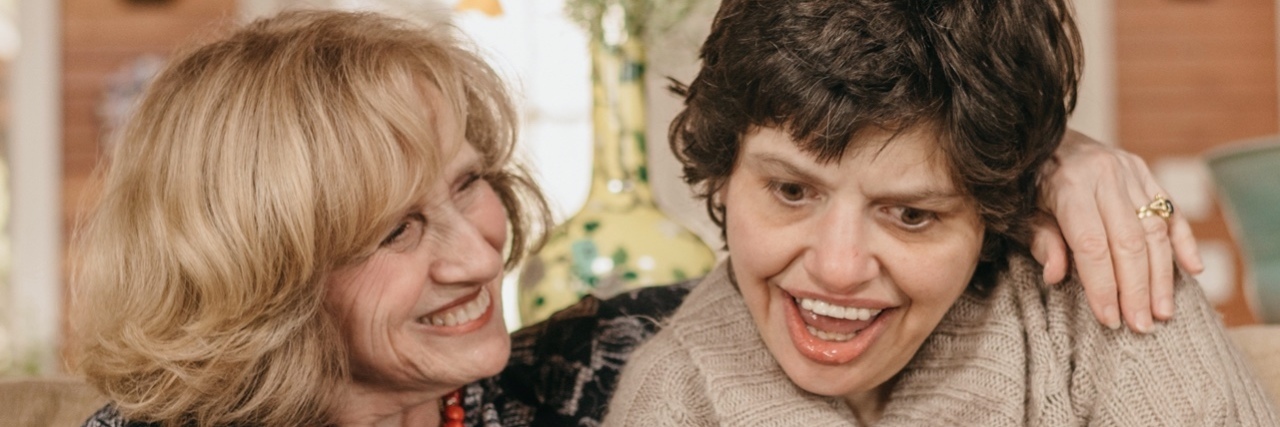How COVID-19 Has Made Care Political as Well as Personal
One week when care moved from the nursery to the convention hall
America is sick, broke, and hurting. The recent two National Conventions had different menus on offer to satisfy a crisis-ridden nation. But the Democratic Convention tried something new, something that’s a novelty at a political convention.
Care.
I do not believe we have ever heard more about care at a Presidential Nominating Convention than in this year’s Democratic convention. “Patriotism,” “justice,” “bravery,” “strength”? For sure. But “care”? Scarcely a word. Yet we now hear that the role of the President is to “care about and for the people” he governs.
Socrates spoke of the task of a ruler to care for the shepherd who cares for his flock. But in contemporary America, such words would seem more religious than civic. In our democracy, care is for the home and hospital, the nursing home and the nursery — not the political arena.
In politics, we call on workers and warriors, not caregivers. I’ve spent a lifetime studying the philosophical grounding of the notion of care, of why care falls to women and why we so rarely hear it spoken of publicly. I’ve never seen the subject of my work laid out so clearly for so many.
What has changed?
The answer, of course, is that the pandemic has shone a stark, public light on the essential need for care in the life of a nation. Now more than 200,000 Americans are projected to die by the end of September, not as war casualties, but as casualties of the failure of care in all its permutations: caring for, caring about, giving care, receiving care, taking care, taking care of and healthcare.
Caregivers, whether they be health professionals or direct-care workers, are now heroes. Caregivers are the new warriors.
Take care! That’s how we say good-bye these days. But without good information and unless others take care, we can’t even take care of ourselves. Now people in the millions are sickened. When the sick suffer and die alone, when we have to stay away from people we love not because we don’t care but because we do, conceiving of our society as a mere collection of independent individuals sounds so hollow.
Human infants have a very long period when they need to be cared for — when they are totally dependent. We experience periods of outright dependency throughout our lives: when we are very ill, when we reach our last years, when we are injured through accidents or experience a disability that requires steady and constant assistance. For a few, such as my daughter, Sesha, who has PURA syndrome — a lifelong condition that includes intellectual disability, epilepsy and physical disabilities — that dependence is life-long. Without exceptional care, she could not have the rich and wonderful life she has.
For the rest of us, the move away from dependence is not truly independence either. Instead, we become inter-dependent. We are dependent on the farmers, the truckers, the grocers, and so on for the food on our plate — and they likewise are dependent on us. Yet the webs of dependence and interdependence that keep us alive fade into the background of our consciousness, permitting us the illusion of independence. They are as imperceptible as the musical scores that sustain the narrative of a film.
But these webs are built and maintained by invisible workers. Like the infrastructure of the bridges, transit systems and highways, the infrastructure of care makes our lives go well or badly depending on its strength, not ours own alone.
The pandemic has taught us how tenuous those systems of care are that sustain us all, no matter how lucky we otherwise may be. When our own lives are not in crisis, we fail to see how our neglect, self-absorption, disdain for others weakens the structure as a whole.
Traditionally, women have done the majority of the caring, spinning threads of connection from their own selves, uncompensated by the marketplace. As women engage as well in the labor market, they are still largely responsible for the care of their families. But none of us can raise a child on our own. And mothers have never been the sole carers: fathers, grandparents and social institutions that educate, entertain and foster the growth and development for children have been indispensable partners in care.
To care for dependents, the carer must be cared for, both for the sake of her charge and for her own sake. Without such basic infrastructure, we have anxiety, confusion and chaos.
Contagion knows no independent individuals. Its boundaries are not the boundaries of our skin. It relies on the inevitable sociality of human beings. But our vulnerability is also our defense: bonds of care minimize, and can even defeat, the power and reach of COVID-19.
Care must move out of the private domain, out of the recesses of hospital rooms and nurseries, nursing homes and day-care centers. We seem to recognize now that a leader of a nation is entrusted with its care.
Care is no longer personal. It never was. Care is political.


